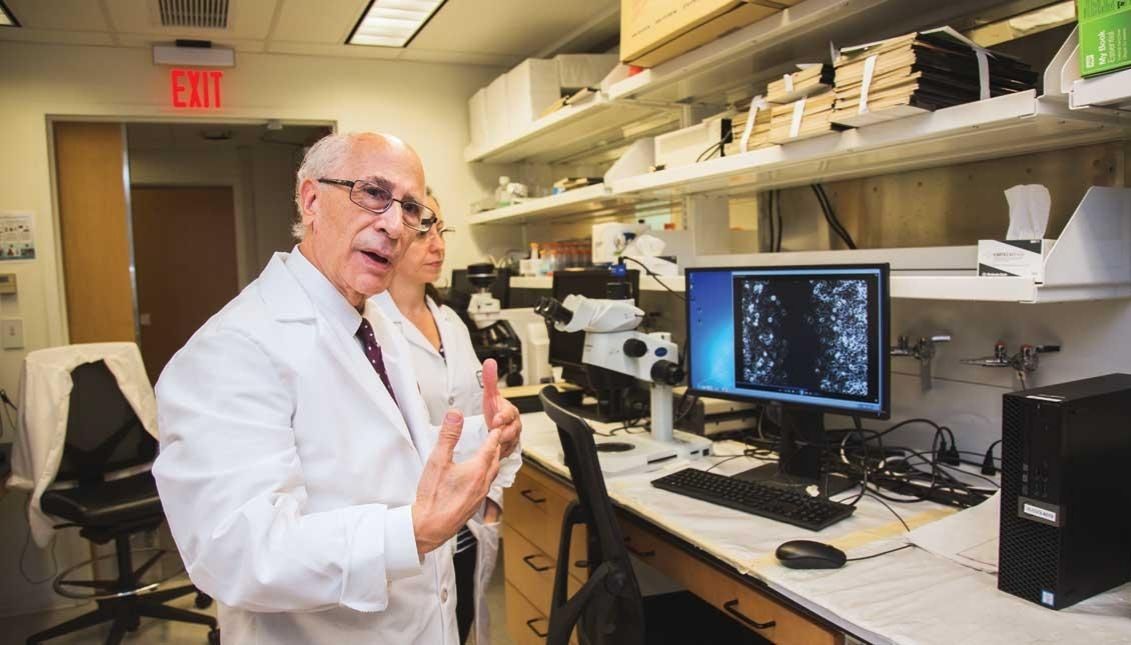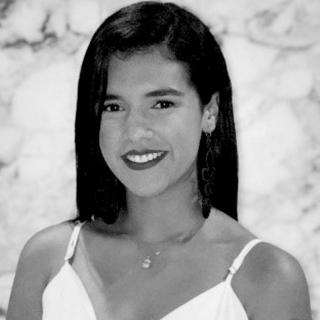
In his lab, Dr. Russo explains how fast cancer cells can develop, 2018. Photo: Sam Laub / AL DÍA News
Five Latino scientists who made history
These are some of the Latinos who devoted their lives to science.
The field of science has always been known for being tough, but also very rewarding. Several of the great scientists who have contributed to different fields of knowledge are Latinos or of Latino descent.
Here are some of the most important exponents:
Rodolfo Llinás Riascos
He is a Colombian-American neurophysiologist and professor who is recognized for his contributions to neuroscience.
Llinás is a graduate of the Pontificia Universidad Javeriana and obtained his PhD in neurophysiology at the Australian National University.
He is currently professor of neuroscience at the New York University School of Medicine, where he was also director of the Department of Physiology & Neuroscience and holds the Thomas and Suzanne Murphy Chair at the New York University Medical Center, where he also obtained a doctorate.
He directed the NASA Neurolab scientific working group program. Among the various contributions for which he is known are his work on comparative physiology of the cerebellum, the intrinsic electrophysiological properties of neurons with the enunciation of what is now known as 'Llinás's Law', and on the relationship between brain activity, brain waves and consciousness.
Solomon Hakim Dow
Hakim was a Colombian physician and researcher who focused much of his work in the field of neurosurgery and neurology, standing out for his contributions in the field of hydrodynamics of the central nervous system. It was he who discovered the syndrome of normotensive hydrocephalus and developed a valve for its treatment.
In 1964, Hakim developed a new type of unidirectional valve that regulated the drainage of cerebrospinal fluid and was used for the treatment of normotensive hydrocephalus syndrome, which he also discovered.
Carlos Hakim, one of Solomon Hakim's sons, perfected and improved the valve, creating a design that allows it to be manipulated and programmed transdermally in case it is necessary to graduate the tolerated pressure.
Ellen Ochoa
Ellen Ochoa became the first Hispanic woman to go into space in 1993.
Ochoa first served a nine-day mission aboard the space shuttle Discovery, where she and a team of astronauts studied the Earth's ozone layer, and then returned to space three more times, spending nearly 1,000 hours in orbit.
Ellen Ochoa was honored with NASA's Distinguished Service Medal and also served as director of the Johnson Space Center in Houston, Texas from 2013 to 2018.
Carlos Juan Finlay
This Cuban physician and scientist is recognized for being one of the pioneers in the study of yellow fever.
In 1881, Finlay first presented at the Academy of Sciences in Havana his extensive research suggesting that mosquitoes transmitted the disease, he became a laughingstock. According to Finlay's son, the speech was met with initial silence, followed by "universal ridicule." It was another two decades before Finlay's hypothesis was widely accepted.
Finlay spent 20 years of his career perfecting his theory, raising mosquitoes and conducting hundreds of tests to support it.
Jose Russo
Dr. Jose Russo, born in Argentina, was the director of the Fox Chase Breast Cancer Research Laboratory in Philadelphia during his later years.
Russo also served on the staff of Fox Chase Cancer Center as Chairman of the Department of Pathology and Director of the Breast Cancer Research Laboratory (BCRL) in 1991.
He and his wife founded the Breast Cancer Research Laboratory (BCRL) and together they authored more than 200 papers and obtained more than $35 million in grants for their efforts in breast cancer research.
"What makes my day is the urgency of carrying out my legacy in this world," Russo told Al Día News in 2018. "And that is to provide a strategy to prevent breast cancer".











LEAVE A COMMENT: